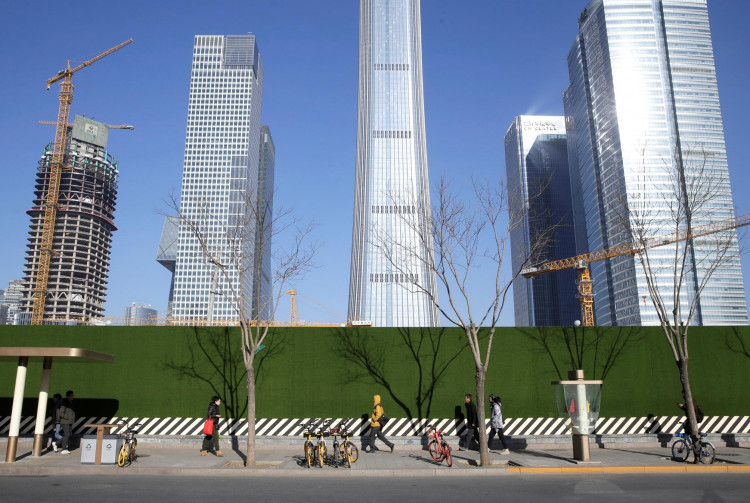A blue book published in China on Saturday revealed that, although getting much older, the permanent population of the country's capital city has steadily dropped in the last two years.
In contrast, as Beijing has moved non-capital functions to neighboring areas, the sub-center of the capital, Tongzhou district, has seen more population growth.
The reference document released by the Beijing Population and Social Development Research Center and the Social Sciences Academic Press notes that the migrant population of the capital has decreased since 2015. It had fallen to 7.65 million in 2018, down 3.75 percent year-on-year.
Experts say that as the non-capital functions of Beijing are gradually shifting out and with the crackdown on illegal systems, migrants have been faced with more stress living and working in the metro, causing the population to decrease continuously.
Relocation, Demolition To Blame?
In the past two years, the permanent resident population of Beijing - citizens with hukou, or those who have stayed in the city for more than six months - also shrank.
Yang Hongshan, a professor at the Chinese Public Administration and Policy School at Renmin University said the drive-by municipal authorities to demolish illegal buildings has increased migrants' daily living costs, making it more difficult for them to find housing.
"Their employment opportunities were also diminished by improving the municipal government's environmental pollution curbs and relocating several factories," he said.
Meanwhile, the capital moved administrative departments to the district of Tongzhou, which thinned downtown Beijing's population density, he added.
The number of Tongzhou district permanent residents reached 1.57 million in 2018, 70,000 more compared to 2017, the study said. The migrant population of Tongzhou was 657,000, which is 98,000 more than in 2015.
'Hyperaging': More Old Than Young
"Tongzhou will still need some time to be able to completely accommodate more people as it is slowly being built to support facilities for government agencies and other public facilities," Yang said.
The study also found that the aging Beijing population dramatically increased in 2018 relative to the newborn to 14-year-old juvenile population.
The teenage population accounted for 10.5 percent of last year's estimate, while the age of 65 and older people accounted for 11.2 percent.
Dang Junwu, deputy director of the China Research Center on Aging, said Beijing has become a "hyper aging society" in recent years, one with a large proportion of people 80 years of age or older.
According to government findings, the aging population is a normal social transformation and part of the reason is that large cities have "low fertility rates."





